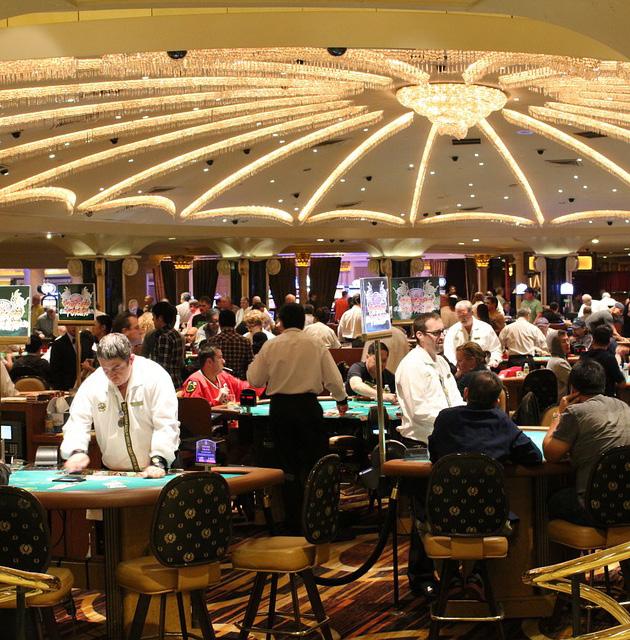
13 minute read
BECAUSE YOU’RE YOUNG
By Tim Cullimore
We’ve just moved house, and when unpacking the stuff that had been stored in the attic of our old home for some years I came across a box of old photographs from when I worked on the cruise ships as a dealer all of 35 years ago. I remember well of course the broad outlines of the couple of years I spent working in the Caribbean, Alaska and New England but it was the details that brought me up short.
Of course, the face of the hundreds of people I worked with brought back some fantastic memories, but putting names to them all was another matter. How is that I spent some the best nights of my life in the bars of San Juan, Puerto Rico, but cannot remember the faces, never mind the names of some of the people I’m drinking with. But what is remarkable are the stories that came flooding back. When you are for maybe six months living in quite cramped conditions you often hear the same tales over and over again, but somehow they never seemed to become boring.
The English shop manager for instance who returned home after one shipboard contract to find his parents had moved without telling was on the on the face of it was rather tragic but made us laugh long and hard each time he told it. Or my cabin mate who had gone out partying the night before taking his flight from the U.K. to join the ship in Fort Lauderdale and found on arrival that he had packed his brother’s clothes instead of his own.
I found a photo of my attempts to learn water skiing near Acapulco, which reminded me of the sad story of a passenger who was very ill so that ship had docked six hours earlier than planned in Acapulco, and although we were very concerned for the passenger, this gave us the change to get off the ship and hit the clubs for an extra night. I’m afraid the fate of the passenger was soon forgotten.
And then the bars we frequented regularly, but on different islands, or even in different countries! But to us it was like going down to our local pub or bar. The fantastic Southport Raw Bar in Fort Lauderdale, or the bar at Lime Tree Beach in the U.S. Virgin Islands. I ask myself; did we ever do any work?
Which brings to my point, that I value very much the day I was given the change to be a dealer. It opened up whole new worlds for me, gave me the chance to travel to places I would never have dreamed of, and introducing ways of life I never thought possible (West Palm Beach and the San Blas Islands in one week? Where else would you get that opportunity).

So I was pleased to see that one of London’s leading and busiest casinos is advertising for trainee dealers. I wondered how the life of a dealer would compare nowadays to that which we lived back in the day. I am sure working conditions are a vast improvement on what we did back in the 70s and 80s. Less hours worked on the tables, better protection against abuse, no smoking of course in the workplace, and generally a greater understanding of the welfare of the staff. I compared the salaries of today’s dealers with that of 40 years ago and when taking inflation into account they are remarkably similar. I always felt pretty well off when first starting out, so I hope the new dealers feel the same, although there a lot more things to spend their hard-earned wages on now than back when I started.
I would recommend the career to anyone, especially as the chance to travel is still very much alive, and working in the U.K. casino industry must be still exciting, especially in London. But cities such as Leeds, Birmingham, Liverpool and Leicester are far more vibrant today than before, so I would think that working shifts, especially at night, would be more enjoyable rather than less, due to the opportunities for leisure activities after work, which hardly existed on the past. I just question whether today’s young people would like to work out of normal hours, and I can’t see dealing and




Tim Cullimore at London Gaming Dal Negro distributor for UK Dal Negro, through its R&D team, developed and applied to the new productions of both its cardboard and PVC playing cards, an innovative sanitizing technology. The effectiveness has been validated through independent laboratories through tests that highlight «prolonged reduction of viral and bacterial content».



The innovative #playsafe technology has been applied to products marked with the dedicated QR code. Once scanned it leads to a landing page where additional information can be found along with the effectiveness tests. For playing cards, the QR is located on the first ace.

working from home being an option any time soon, so we as casino managers must find a way to attract the best and brightest of the present generation.
But the career paths that are afforded the gaming staff in out neighbouring countries such as France and Germany still seem to be missing the U.K. Also, the chance to remain a dealer or supervisor but earn good salaries is limited here, which is not the cases in Europe and the States, a point I have touched upon in previous articles.
Although my managerial colleagues in London and elsewhere may not thank me for it I would strongly encourage any young person looking for a new direction and challenge to be trained in the U.K. as a dealer and then look for the opportunities to travel and work elsewhere in Europe or around the world. U.K. dealers are valued for their professionalism, as well as their capacity for partying. After all the parties in the Officers Bar (O.B.) never got properly started until the casino staff arrived.
Covid Hangover.
It seems the medium to long term effects of the Covid pandemic are starting to be seen in the land-based industry with casinos for sale across Europe. Major and minor companies is having to divest themselves of some of their properties to shore up their bank balances. Some recent acquisitions have returned to the market as companies who were previously very positive about their new purchases are seeing that a closed casino is ruining their overall financial situation.
The irony of course is that only the profitable parts of the company have any value, so some of the largest operators is having to sell their best assets, or they are at least thinking about it. I predict that the map of the European casino industry will look very different in 2 years’ time to what it is today. Investors with the patience and funds to weather the present storm will be very well placed to snap up some bargains.
Lindwall To Stay As Betsson Boss
Pontus Lindwall at the IGA Awards
Pontus Lindwall will now remain as the companies CEO and not step as was the plan when he walked back into the role in 2017.
The founder of the company was due to step down once a thorough search for a suitable candidate had been concluded, however Betsson the Stockholm-listed company has announced that, “it would not be a good time” to change the leadership.
Lindwall founded the company but then stepped back only to be called back to the role in 2017 as the company said it “needed the back on track” strategic transformation Lindwall would bring.

Johan Lundberg the Chairman of Betsson said, “We have had several discussions with Betsson’s main stakeholders, the Betsson management team, Betsson employees, as well as many of the largest shareholders and based on those discussions the current Board does not believe that it would be good to change leadership now. The company need to focus on all important work that lays ahead, such as for example the unexpected Dutch situation.” Dutch KOA online gambling regime licence and it is now thought Lindwall will make it his top priority to gain the license.
In other related news Betsson announced their Q3 trading update showing a rise of 3% in quarterley revenues compared to the same period in 2021.
The company showed an increase in sports betting but a decline in online casino revenues during the period.
Slot Management 101:
Controlling a stage boundary
You got your project approved and started your first stage of work. Progress is good and you’re almost ready to start the next stage, but before the next stage can be authorized, you need to review everything with the project board. So how do you do that?
By Andy Cosgrove
After receiving project approval, you gave yourself a much deserved pat on the back and congratulated all those involved for a job well done. So far, your first stage is going as planned and within the constraints for time, quality and cost. As a project manager you’re fully aware of the need to breakdown your project into manageable stages that are easily controllable and where risks and issues can be dealt with quickly before the infamous scope creep takes over and before you even start work on another stage.Put another way,it’s essential to review progress and ensure that everything is going to planbefore your project for introducing a new set of procedures designed to improve customer service response times turns into yet another totally unnecessary refurb of your already over the top VIP area! The main reason for the controlling a stage boundary process is to enable the project manager to provide the project board with sufficient information to review current status, approve the next stage, review the updated project plan, and confirm the continued validation of the business case. The following is a list of activities designed to effectively manage a stage boundary, and are carried out toward the end of each management stage: The stage plan for the next management stage is carried out towards the end of the current stage. Planning is not a task done in isolation and should include as many stakeholders as possible such as the project board, project assurance and team managers. The more people involved in the planning phase, the more robust the plan will be. It is also recommended to produce a team plan in parallel with the stage plan as this gives the project manager a good idea of what is achievable at a team level. The following actions should be taken under consideration to keep your next stage on track:

• Review the components of the PID as it may be necessary to consult with the project board regarding any required changes
• Produce the project plan for the next management stage
• Create, or update, project configuration records
• Update the issue and risk registers
• Update the quality register for planned management activities
Update the project plan – The project board uses the project plan to measure progress throughout the project’s lifecycle. The project plan is updated to incorporate the actual progress compared to the baseline and includes forecast duration and costs from the exception plan or stage plan for the next management stage. I recommend the following actions:
• Check that the current stage plan is up to date
• Revise the project plan to reflect (amongst other things) the actuals from the current stage, forecasts from the next phase, implications of any issues and risks, and any changed or extra products that have been sanctioned by the project board.
• Update the issue and risk registers if necessary
Update the business case– The business case is an essential part of planning the next stage as the project board will normally only authorize the next management stage if the project remains viable. External factors can inevitably cause project changes and the business case needs to reflect these changes and keep them relevant to the project. As the project executive is ultimately responsible for the business case the project manager should consult with the executive when reviewing the business case in preparation for project board approval. Actions should include:
• Check for changes in the risk appetite
• Update the benefits management approach
• Examine and review the benefits management approach, impact of approved changes and the project plan
• Revise the business case and, if necessary, the benefits management approach
• Review and update the issue and risk registers as necessary


Report management stage end – Just as important as gaining approval for the stage that is about to begin, is informing the project board of the results of a management stage that is ending so that progress is clearly visible to the project team. This is a great opportunity for the project manager to demonstrate the continuing ability of the project to meet therequirements of the project plan and business case andto assess the overall risk situation. This activity should be carried out as close as possible to the end of the management stage and include the following:
• In the case of a stage plan, review the status of the business case and achievement of any benefits. Review the stage plan to ensure objectives have been met
• In the case of an exception plan, it may be necessary to produce a report based on the activities to date. Whether or not this is required will be determined by the project board
• If appropriate, review lessons learned which is common for projects of a prolonged duration.
• Seek approval from the project board of the stage plan or exception plan
• Review the communications management approach
Produce an exception plan – It’s a common occurrence that a management stage will drift beyond the agreed tolerances and so no longer has the approval of the project board. In this case the project board will request an exception plan in response to an exception report before the project can continue. Actions that should be taken are as follows: • Review and, if needed, update the PID (project initiation documentation)
• Produce the exception plan
• If used, create / update configuration item records for the products to be produced by the exception plan
• Update the quality register
Conclusion–Based on my experience, it’s impossible to plan for everything and it’s also not to helpful to plan to far ahead because change is inevitable and risks, issues and all kinds of external factors will alter the course of your project. Managing a stage boundary correctly is just as important as managing any project management stage and will help you plan the way forward more effectively, deal with any emerging issues and risks, save time and money, avoid the dreaded scope creep and allow your team greater focus. If the desired outcome of your project is introducing a new set of procedures designed to improve customer service response times, then managing a stage boundary correctly will help you achieve just that, on time and within the tolerances for quality, cost and scope. Or do you really want another VIP room refurbishment without telling your boss?
MY MINI-BLOG - Andrew Cosgrove is a seasoned slot operations veteran and certified project manager with over 24 years of hands on experience in Latin America and the Caribbean. Andrew has worked on both the operator and supplier side of casino slots and continues to help clients succeed and exceed customer expectations. Andrew can be reached at andy.cosgrove@henimgwaycasinoconsulting. com or seehttps://hemingwaycasinoconsulting.com/






